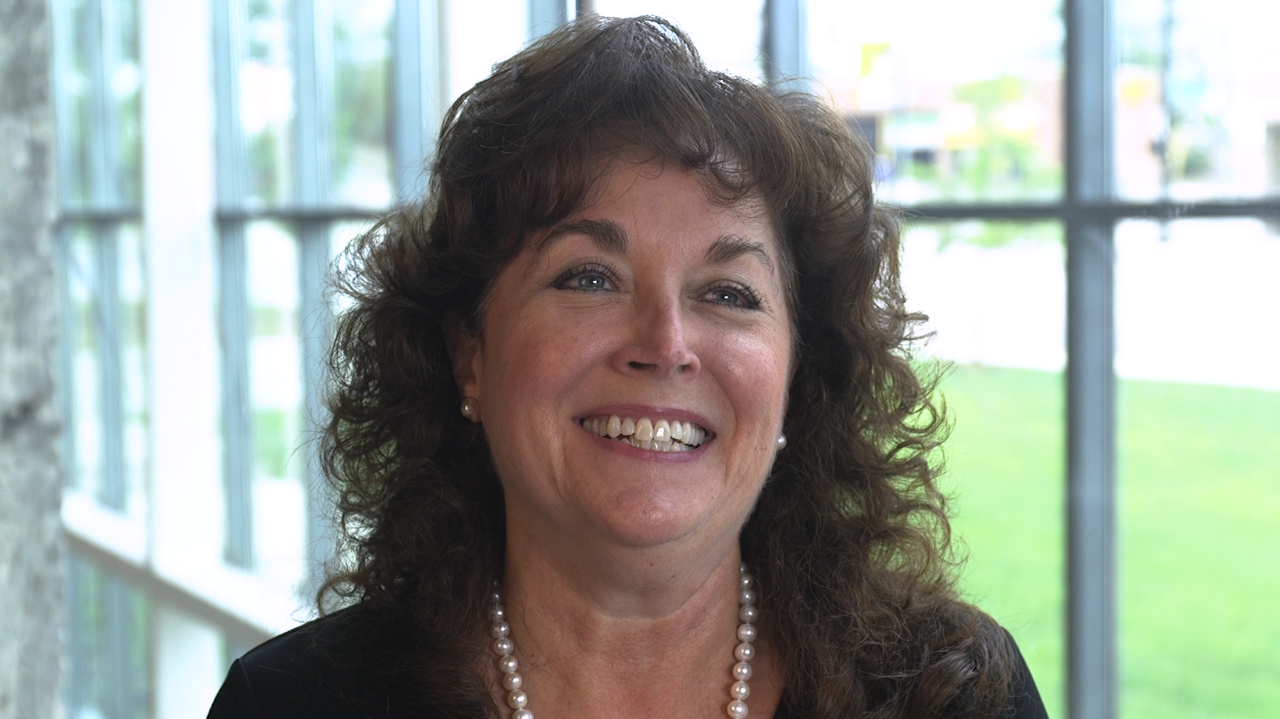
What are common misconceptions about engineering?
From problem solving to creativity, Teri Reed explains how engineers make a difference
Assistant vice president of faculty research and chemical engineering professor Teri Reed explains misconceptions about engineering and how you can make a difference as an engineer.
Myth: You have to love math
Teri Reed: You might have heard that you needed not just to be great at math, but you better love it. We have learned that you don't have to be great at math. There's a study that came out of the National Academy of Engineering that said: you don't have to love it, you have to be able to do it. It's a tool in the tool belt. When people talk about medicine they don't talk about anatomy and physiology, but when people talk about engineering you hear: oh calculus and differential equations—instead of elegant solutions, creativity, and fun.
Myth: Engineers aren't creative
Reed: Engineering as a discipline is highly creative. Psychologists have told us, by studying creativity, we know that comes from a diverse individual perspective. In order to make engineering be as good as it can be, then we need creative people. We need diversity of thought, diversity of background, and diversity of experiences.
Myth: Engineers don't problem solve
Reed: We always should seek not just a solution because—there's lots of solutions to engineering—but the elegant solution. There may be multiple elegant solutions, but we get to pick. We have to choose based on decision making. That is engineering in a nutshell: designing elegant solutions for human solutions and how do we come to that conclusion in creative, positive, and socially responsible ways.
That is engineering in a nutshell: designing elegant solutions for human solutions and how do we come to that conclusion in creative, positive, and socially responsible ways.
Teri Reed, Assistant vice president of faculty research and chemical engineering professor
What you didn't know about engineering
From endless career possibilities to picking a major, here are a few things you might not know about picking an engineering major.
Your engineering major is only important for your first job
Reed: Engineering is absolutely multidisciplinary. We're going to ask you to choose a major and I always like to tell students that major is important for your first job and after that you, broaden out and it becomes that you're just an engineer.
Some say engineering is the liberal arts degree of the future
Reed: Essentially engineering is a way to learn. It's a way to think so you can be a part of a multidisciplinary team and solve big problems that are facing us as people. A lot of people say it's the liberal arts of of the future in that everyone needs that kind of thinking, that type of technical background, that literacy that will help us to solve these multi-disciplinary, uber big problems.
Everyone has the potential to be an engineer
Reed: I think everybody has the potential to be an engineer. It's about their pathway, it's about who has encouraged them and what they have learned. There's a place in engineering for everyone because it is so broad and it's so creative.
Career possibilities are endless as an engineer
Reed: I love when people ask: what can you do when you graduate with an engineering degree? Anything you want! Engineering prepares you to go along any path because it really is just a way of thinking. You get to choose. And hopefully what we provide to you in the College of Engineering Applied Science here at UC is we get to show you what your alternatives are to help you make those decisions. Not that they're permanent decisions. I have done so many different things, but I'm confident that I can do [anything] because I know that my background prepared me for my future and it will prepare you too.
Tags
Related Stories
What it's like to transition from UC regional campus to uptown...
Leia Han, a third-year chemical engineering student, began her journey at UC Clermont College. She spent three semesters at the regional campus as a pre-engineering student. The unique opportunities offered through UC's cooperative education (co-op) program are what drew Han to main campus. The academic resources and advisors at CEAS helped her transition to be smooth.
Student Success Center aims to foster support and belonging
November 8, 2023
The College of Engineering and Applied Science at the University of Cincinnati is celebrating its first-ever space dedicated to undergraduate advising and student success with the launch of the Student Success Center.
Local 12: Oak Hills students learn engineering skills
February 24, 2023
Local 12 highlighted a cardboard boat race by engineering students at Oak Hills High School, where students can earn college credit through UC's College of Engineering and Applied Science.
